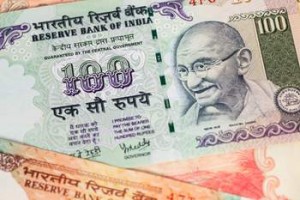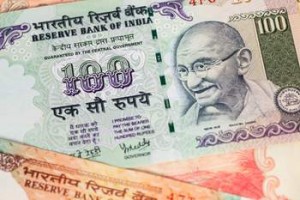The Financial Times
Swaminathan Aiyar
 At a time when most emerging markets are sinking, India is an exception. Its growth estimate for 2015-16 has just been revised upwards to 7.6 per cent, making it the fastest-growing major economy in the world. Its resilience is, however, being tested by tough global conditions. India’s budget, due on Monday, must address not only local concerns but also those of global investors. If it does not, India may join other emerging markets in a downward spiral.
At a time when most emerging markets are sinking, India is an exception. Its growth estimate for 2015-16 has just been revised upwards to 7.6 per cent, making it the fastest-growing major economy in the world. Its resilience is, however, being tested by tough global conditions. India’s budget, due on Monday, must address not only local concerns but also those of global investors. If it does not, India may join other emerging markets in a downward spiral.
To fiscally loosen or not to loosen, that is the question. Finance minister Arun Jaitley is vacillating after receiving conflicting advice from his chief economic adviser, Arvind Subramanian, and Raghuram Rajan, the governor of the Reserve Bank of India. On assuming office in 2014, Mr Jaitley castigated the outgoing Congress government for profligacy and promised a return to fiscal discipline. He pledged to cut the fiscal deficit to 4.1 per cent of gross domestic product in his first year, 3.5 per cent in his second year, and 3 per cent in his third year.
Mr Jaitley has already postponed that target by a year, however, and Mr Subramanian is pushing for a second postponement. The fiscal deficit is scheduled to fall from 3.9 per cent of GDP this year to 3.5 per cent next year. Mr Subramanian wants to keep the deficit unchanged at 3.9 per cent, giving a countercyclical boost to offset global headwinds.
Indian corporations are highly leveraged, struggle to service massive loans and are unable to invest in badly needed infrastructure. Mr Subramanian has said public investment must rise to offset the shortfall in private investment. The government faces a wage revision of $10bn next year, squeezing its room for manoeuvre. It also has to provide significant sums to recapitalise public sector banks, which have made large provisions for dud loans following Mr Rajan’s orders to clean up their books. Mr Subramanian’s solution is to postpone fiscal consolidation and to finance an infrastructure boost after taking care of other expenses.
Mr Rajan is opposed. Fiscal reputations are difficult to build, he maintains, and easy to destroy. If India abandons fiscal consolidation, global investors may lose confidence and pull billions out. “As Brazil’s experience suggests,” Mr Rajan said in a lecture last month: “The enormous costs of becoming an unstable country far outweigh any small growth benefits that can be obtained through aggressive policies.”
He emphasised that state government fiscal deficits have also started widening. The combined fiscal deficit of the central and state governments was 7.2 per cent of GDP in 2015, much too high for a country whose debt-GDP ratio is already 66 per cent. India must therefore eliminate risks to macroeconomic stability, Mr Rajan said, not increase them through fiscal adventures.
Higher deficits are not the only way to fund additional infrastructure. Mopping up half the oil price fall through taxes could yield 0.5 per cent of GDP. Asset sales are another alternative. The government acquired a bunch of blue-chip companies when it rescued the Unit Trust of India and these now have a market value close to $10bn, equal to the entire additional wage bill next year. In the current fiscal year, Mr Jaitley had planned to sell $11bn of shares in public sector corporations (mostly minority stakes) but actual sales have been less than half that. With the stock market tanking, he is reluctant to sell at today’s low prices.
Mr Jaitley recently held a meeting with Indian economists, who were split on whether to stick to fiscal consolidation or go for an investment boost. He has said that he will mull competing suggestions and then formulate his budget strategy.
Sitting on the fence will not do. Whatever Mr Jaitley’s convictions, he should defer to Mr Rajan, whose term as central bank governor ends in August. Mr Jaitley must do everything it takes to persuade him to stay for a second term. Mr Rajan is regarded as credible by global financiers, who were impressed by his leadership during the storm caused by the “taper tantrum” sell-off in 2013. For Mr Jaitley to ignore Mr Rajan at this point would be a significant blunder. It would be to inflict a personal humiliation tantamount to asking the governor to leave.
Mr Jaitley’s credibility with financial markets fell last year when he reset his fiscal target. If he postpones it for a second time, humiliating Mr Rajan in the process, foreign investors may conclude that India has lost the plot. If they pull billions out of India, it will not just be the economy that suffers. Mr Jaitley’s political career will be in jeopardy, too.




